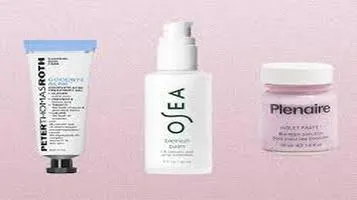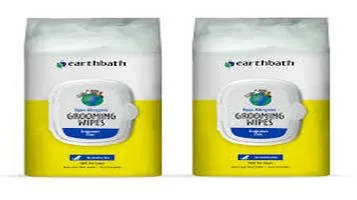Comprehensive Review of the Most Effective Acne Treatments
The most effective acne treatments often involve a combination of topical and oral medications tailored to individual skin types and acne severity. Topical treatments typically include retinoids, which help unclog pores and reduce inflammation, and benzoyl peroxide, known for its antibacterial properties. Salicylic acid is another popular ingredient that exfoliates the skin and reduces oil. For more severe cases, dermatologists may prescribe oral antibiotics to target bacteria and reduce inflammation, or oral contraceptives for hormone-related acne. Isotretinoin, a powerful vitamin A derivative, is reserved for severe, resistant acne cases. Additionally, incorporating a gentle skincare routine and maintaining a healthy diet can support treatment efficacy. Consulting a dermatologist is crucial to determine the best personalized treatment plan.

Acne is a common skin condition that affects millions of people worldwide, transcending age, gender, and ethnicity. The quest for clear skin often leads individuals to explore a myriad of treatments, both over-the-counter and prescription-based. In this review, we'll delve into the most effective acne treatments available today, examining their efficacy, mechanisms of action, and potential side effects.
Over-the-Counter Treatments
1. Benzoyl Peroxide
Benzoyl Peroxide is a cornerstone in acne treatment, renowned for its bactericidal properties. It works by releasing oxygen into the pores, which eradicates the acne-causing bacteria, Propionibacterium acnes. It also helps to remove dead skin cells and excess oil, reducing blockages in the pores.
Efficacy: Studies have shown that Benzoyl Peroxide can reduce acne lesions by up to 75% in some cases. It is particularly effective for inflammatory acne, such as papules and pustules.
Side Effects: Common side effects include dryness, redness, and peeling. Some individuals may experience irritation, which can often be mitigated by starting with a lower concentration and gradually increasing it.
2. Salicylic Acid
Salicylic Acid is a beta-hydroxy acid (BHA) that penetrates the pores to exfoliate from within. It is particularly effective at treating non-inflammatory acne such as blackheads and whiteheads.
Efficacy: Salicylic Acid can significantly reduce the formation of comedones and improve skin texture. It is often found in concentrations ranging from 0.5% to 2% in over-the-counter products.
Side Effects: Potential side effects include mild irritation and dryness, especially in individuals with sensitive skin. As with Benzoyl Peroxide, starting with a lower concentration can help minimize adverse effects.
Prescription Treatments
3. Retinoids
Retinoids, including Tretinoin, Adapalene, and Tazarotene, are derivatives of Vitamin A and are considered among the most potent topical treatments for acne. They work by promoting cell turnover, preventing the formation of new comedones, and reducing inflammation.
Efficacy: Clinical studies have demonstrated that retinoids can reduce acne lesions by up to 70%. They are effective against both inflammatory and non-inflammatory acne and can also improve skin texture and reduce post-inflammatory hyperpigmentation.
Side Effects: Common side effects include dryness, redness, and peeling. Retinoids can also make the skin more sensitive to sunlight, so the use of sunscreen is recommended.
4. Antibiotics
Topical and oral antibiotics, such as Clindamycin and Doxycycline, target Propionibacterium acnes and reduce inflammation. They are often used in combination with other treatments like Benzoyl Peroxide to prevent antibiotic resistance.
Efficacy: Antibiotics can be highly effective, particularly for moderate to severe inflammatory acne. However, their use is generally recommended for short-term treatment due to the potential for developing antibiotic resistance.
Side Effects: Topical antibiotics may cause dryness and irritation, while oral antibiotics can lead to gastrointestinal issues and increased sensitivity to sunlight.
Hormonal Treatments
5. Oral Contraceptives
Certain oral contraceptives can regulate hormones that contribute to acne, particularly in women. They work by reducing the levels of androgens, which in turn decreases sebum production.
Efficacy: Oral contraceptives can be very effective for women who have hormonal acne, often resulting in significant improvement within a few months.
Side Effects: Potential side effects include weight gain, breast tenderness, and an increased risk of blood clots. It's important for individuals to consult with their healthcare provider to determine if this treatment is suitable for them.
6. Spironolactone
Spironolactone is an anti-androgen medication that reduces sebum production by blocking androgen receptors. It is particularly effective for women with hormonal acne.
Efficacy: Many women experience a significant reduction in acne lesions with Spironolactone, often within a few months of starting treatment.
Side Effects: Side effects can include menstrual irregularities, breast tenderness, and increased potassium levels. Regular monitoring by a healthcare provider is recommended.
Combination Treatments
Combining different treatments can often yield better results than using a single therapy. For example, a regimen that includes a topical retinoid at night and Benzoyl Peroxide in the morning can tackle acne from multiple angles—reducing bacteria, promoting cell turnover, and preventing clogged pores.
Conclusion
The most effective acne treatment varies from person to person, depending on the type and severity of acne, skin type, and individual response to treatments. While Benzoyl Peroxide and Salicylic Acid are excellent starting points for many, prescription treatments like retinoids and antibiotics offer potent solutions for more stubborn cases. Hormonal treatments provide targeted relief for women with hormone-related acne. Consulting with a dermatologist can help tailor a treatment plan that maximizes efficacy while minimizing side effects, paving the way to clearer, healthier skin.






